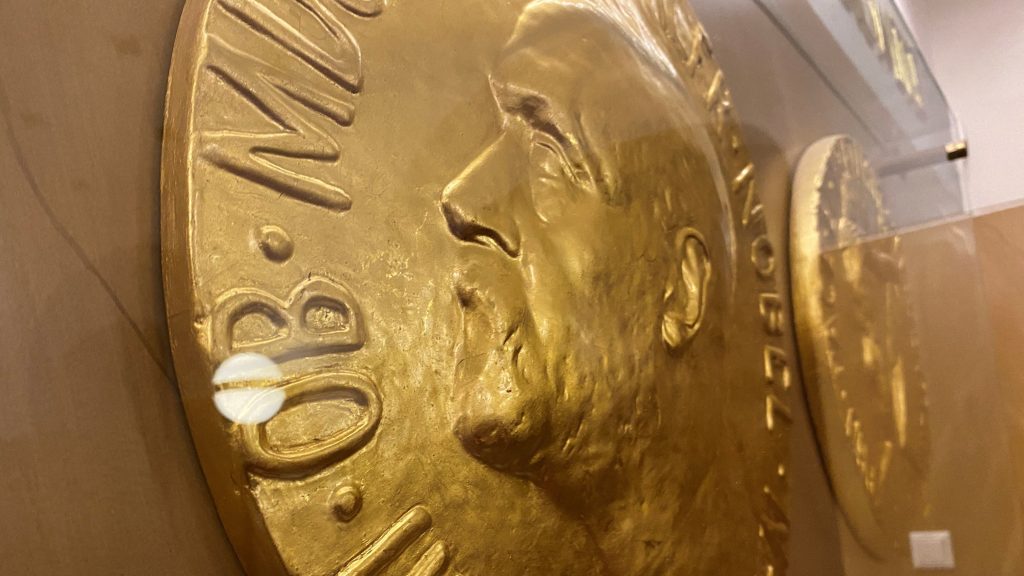How Is The Nobel Peace Prize Decided?

The winner of the 2023 Nobel Peace Prize will be announced on Oct. 6 in Oslo. Here is a look at how the award works:
WHO CAN WIN?
According to the will of Swedish industrialist Alfred Nobel, the inventor of dynamite, the prize should go to the person “who has done the most or best to advance fellowship among nations, the abolition or reduction of standing armies, and the establishment and promotion of peace congresses.”
Thousands of people can propose names: members of governments and parliaments; current heads of state; university professors of history, social sciences, law and philosophy; and former Nobel Peace Prize laureates, among others.
This year there are 351 nominees, although the full list will be locked in a vault for 50 years.
Among oddsmakers’ favourites this year are Ukrainian President Volodymyr Zelenskiy and Russia’s Alexei Navalny, though experts say they are unlikely to win.
Zelenskiy is a war leader while the committee focused on Russia last year, lowering both men’s chances.
WHO DECIDES?
The Norwegian Nobel Committee, which consists of five individuals appointed by the Norwegian parliament, is the arbiter. Members are often retired politicians, but not always. The current committee is led by a lawyer and includes an academic.
They are all put forward by Norwegian political parties and their appointments reflect the balance of power in Norway’s parliament.
HOW DO THEY DECIDE?
Nominations close on Jan. 31. Members of the committee can make their own nominations no later than at the first meeting of the committee in February.
They discuss all the nominations, then establish a shortlist. Each nominee is then assessed and examined by a group of permanent advisers and other experts.
The committee meets roughly once a month to discuss the nominations. They usually make their decision at the final committee meeting, which tends to be at the beginning of October.
The committee seeks a consensus on its selection. If it cannot, the decision is reached by majority vote.
The last time a member quit in protest was in 1994, when Palestinian leader Yasser Arafat shared the prize with Israel’s Shimon Peres and Yitzhak Rabin.
WHO IS NOMINATED?
While the full list of nominations is kept secret, nominators are free to disclose them.
Among the names disclosed are Greta Thunberg and fellow environmental campaigner Vanessa Nakate, jailed Russian opposition politician Vladimir Kara-Murza and Chinese protester Peng Lifa.
Experts who follow the award say this year’s prize may highlight human rights activists in a year that marks the 75th anniversary of the Universal Declaration of Human Rights.
The committee could also highlight climate change and reward the Fridays for Future movement, started by Greta Thunberg.
WHAT DOES THE LAUREATE GET?
A medal, a diploma, 11 million Swedish crowns ($994,000)- and immediate global attention.
South African Archbishop Desmond Tutu, the 1984 winner, said becoming a Nobel laureate was a double-edged sword. “One day no one was listening. The next, I was an oracle,” he is quoted as saying in his authorised biography.
WHEN ARE THE ANNOUNCEMENT AND THE CEREMONY?
The announcement will be made at 1100 CET (0900 GMT) on Oct. 6 at the Norwegian Nobel Institute in Oslo by the chair of the Norwegian Nobel Committee, Berit Reiss-Andersen.
The ceremony will take place at the Oslo City Hall on Dec. 10, the anniversary of Alfred Nobel’s death.
($1 = 11.0607 Swedish crowns)
(Compiled by Gwladys Fouche; Editing by Andrew Cawthorne)




